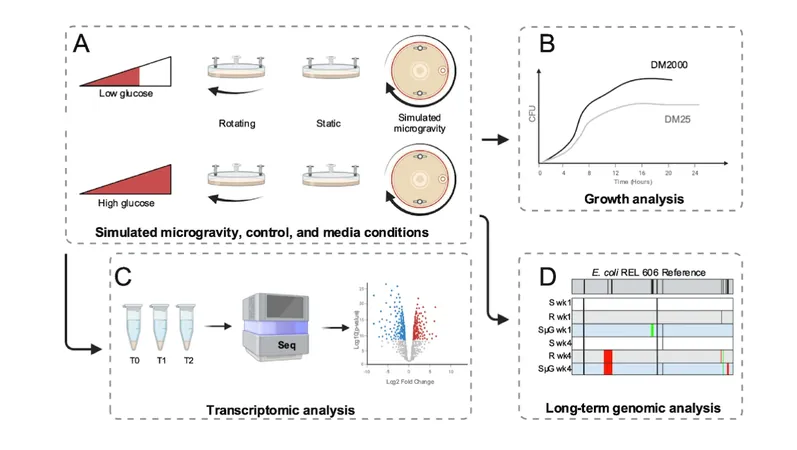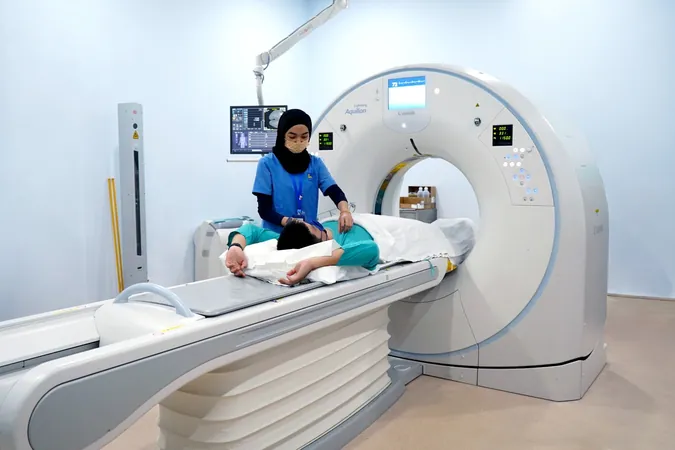
How Simulated Microgravity Is Transforming E. coli: A New Frontier in Microbial Adaptation
2025-07-17
Author: Sarah
Exploring E. coli's Surprising Adaptation to Space-like Conditions
Scientists are diving into the astonishing world of Escherichia coli, particularly a strain known as REL606, to uncover how this familiar bacterium adapts to the extreme conditions of microgravity. This research not only sheds light on microbial survival in space but also hints at broader implications for life beyond Earth.
The Study Revealed Fascinating Insights
In a groundbreaking study, researchers simulated microgravity (SµG) to observe its impact on E. coli's gene expression and evolutionary changes after 35 years of terrestrial adaptation. Over a 24-hour period, results showed that SµG significantly ramped up the activity of genes linked to stress responses, biofilm formation, and metabolic processes.
Understanding the Stress Response
Notably, under glucose-limited conditions, the E. coli cultures in SµG exhibited heightened expression of genes associated with the general stress response (GSR) and biofilm creation compared to those in nutrient-rich environments. This indicates that the bacteria are adjusting their survival strategies when faced with limited resources in a microgravity setting.
Unique Mutations: A Game Changer?
Long-term exposure to simulated microgravity revealed even more astonishing outcomes. The bacteria accumulated distinct mutations, particularly within crucial genomic regions like the mraZ/fruR intergenic zone and the elyC gene. These mutations suggest modifications in critical processes such as peptidoglycan synthesis and the production of enterobacterial common antigens (ECA), paving the way for significant changes in how these microbes function.
Unlocking the Mysteries of Life in Space
The findings from this study not only highlight the adaptability of E. coli in unfamiliar environments but also set the stage for deeper investigations into how space travel might influence bacterial evolution. As humanity prepares for prolonged missions into the cosmos, understanding these microbial transformations could be vital for ensuring human health and safety.





 Brasil (PT)
Brasil (PT)
 Canada (EN)
Canada (EN)
 Chile (ES)
Chile (ES)
 Česko (CS)
Česko (CS)
 대한민국 (KO)
대한민국 (KO)
 España (ES)
España (ES)
 France (FR)
France (FR)
 Hong Kong (EN)
Hong Kong (EN)
 Italia (IT)
Italia (IT)
 日本 (JA)
日本 (JA)
 Magyarország (HU)
Magyarország (HU)
 Norge (NO)
Norge (NO)
 Polska (PL)
Polska (PL)
 Schweiz (DE)
Schweiz (DE)
 Singapore (EN)
Singapore (EN)
 Sverige (SV)
Sverige (SV)
 Suomi (FI)
Suomi (FI)
 Türkiye (TR)
Türkiye (TR)
 الإمارات العربية المتحدة (AR)
الإمارات العربية المتحدة (AR)